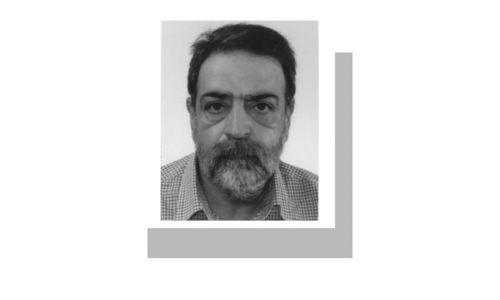Amid global outcry, China defends internment camps of minorities in Xinjiang

China on Tuesday issued an ardent defence of its alleged mass internment of minorities in far west Xinjiang region amid a global outcry, with a regional official insisting that authorities are preventing terrorism through "vocational education" centres.
Beijing has sought to counter criticism with a series of op-eds and interviews and a rollout of new regulations that retroactively codify the use of the system of extra-judicial "re-education" camps in Xinjiang.
Up to 1 million ethnic Uighurs and other mostly Muslim Turkic minorities are believed to be held in such centres, according to estimates cited by a United Nations panel.
Former inmates have said they found themselves incarcerated for transgressions such as wearing long beards and face veils or sharing Islamic holiday greetings on social media, a process that echoes the decades of brutal thought reform under Mao Zedong.
The programme has come under increasingly heavy fire from the international community, with particularly heavy censure from the United States and the UN Committee on the Elimination of Racial Discrimination.
Chinese authorities initially denied the existence of the facilities.
But they have changed their tune as satellite imagery and documents issued by their own government have made it increasingly difficult to maintain that position.
In recent weeks the story has shifted from outright dismissal to acknowledgement that the camps exist, with the caveat that they are being used primarily for "vocational education" in a bid to halt separatist sentiments and religious extremism.
In a rare interview with China's official Xinhua news service published on Tuesday, the chairman of Xinjiang's government, Shohrat Zakir, defended the use of the centres, saying that the region was now "safe and stable".
The official did not say how many people were being held in the centres.
Zakir said the facilities were intended to improve job skills and Mandarin abilities among minorities with "a limited command of the country's common language and a limited sense and knowledge of the law".
"They often have difficulties in finding employment due to limited vocational skills. This has led to a low material-basis for residents to live and work there, making them vulnerable to the instigation and coercion of terrorism and extremism," he said.
He said that the programmes were limited in duration, "trainees" signed a contract with the centres that laid out a clear plan of study and included a stipend.
Asked about the future of the programmes, Zakir said he expected that "some trainees" were "expected to complete their courses successfully by the end of this year".
The comments follow weeks of efforts by Chinese officials and state media to defend China's actions in Xinjiang, where riots and terrorist attacks led to hundreds of deaths in recent years.
Op-eds by Chinese diplomats have appeared in newspapers around the world, arguing that the programme is an effective means of eliminating the threat posed to the region by religious extremism.
An editorial in the nationalist tabloid the Global Times warned foreign governments on Tuesday not to meddle in Xinjiang's affairs.
"Obviously vocational education is a periodic and temporary plan aimed at eradicating extremism," it said, adding that criticism was "just messing up the whole thing and creating a narrative against China".
Critics have warned that mass incarcerations and forced cultural assimilation of China's western Muslim minorities risk further inflaming and perpetuating separatist anger.













































